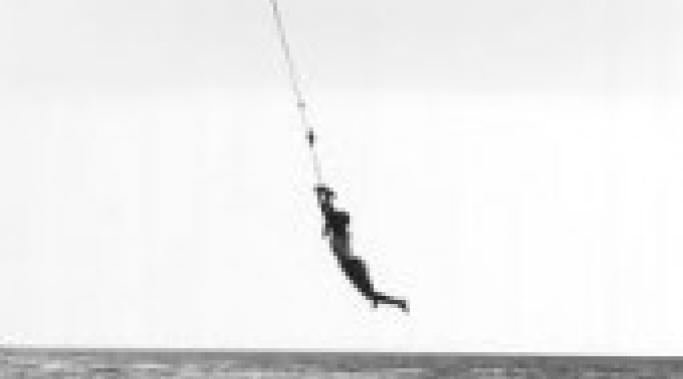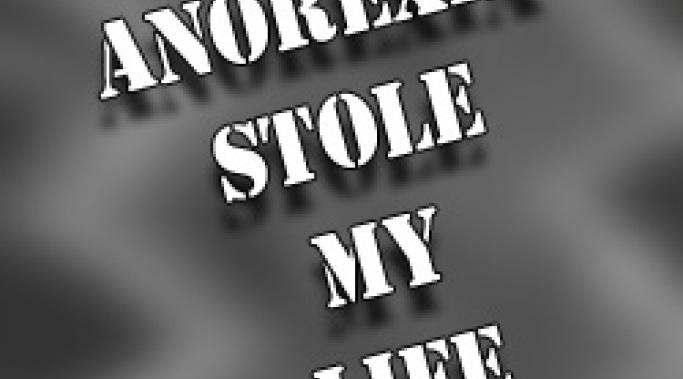Eating disorders can be extremely isolating and lonely. Counting calories or throwing up your food after you eat makes it hard to be around other people. There is the fear that you might eat too much, or that someone will notice that you are just pretending to eat. It takes a lot of energy to hide your eating disorder symptoms, and that makes it easier to stay home and disconnect from your friends.
I have been very lucky. My friends know about my struggles with anorexia, and we have stayed close in spite of my attempts to isolate and hide at times. This week I was again reminded how important friends are to me, and how they play a role in helping me stay in recovery.
Depression and Eating Disorders
"We must be willing to get rid of the life we've planned, so as to have the life that is waiting for us." ~ Joseph Campbell
I have struggled with anxiety and depression for weeks. Several mornings I stay in bed, huddled under my covers where it feels safe, until the very last possible moment. I think about the life I had before I developed anorexia. My husband and I were still together, sharing life and love, enjoying each other's company and spending time with family and friends.
For some reason, I knew drinking a glass of wine at 9:30 in the morning was not a good way to start off the week.
I have been struggling, and that includes continuously arguing with that Nazi Brunhilde voice in my head that keeps telling me I am fat and don't deserve to eat.
It has been a bad week.
Many days I don't want to get out to bed.
I am dealing with some difficult life issues right now, and of course the first thing I turn to is restricting my food intake in order to numb the pain and anxiety I am feeling.
There are some days that I feel as if this will go on forever. I contemplate my future and I can't see the light at the end of the eating disorder tunnel.
My thinness is an outward manifestation of my inner pain that I am unable to voice.
This is my last year of graduate school and I have started working on my thesis. It will be a creative non-fiction piece divided into two parts. One part will be about my struggles with anorexia nervosa, and my ultimate decision to begin the work of recovery in the midst of personal chaos. The other piece will review the memoirs and creative non-fiction writings written by women who have experienced anorexia and/or bulimia.
I deliberately chose to write my thesis about women only, in part because I plan to apply feminist theory to my thesis and I believe that eating disorders develop differently in women and men.
I have been enmeshed in writings about eating disorders these past few weeks, and I have found a common thread throughout the writings that resonate with my own experiences with anorexia.
Silence. At some point, each of these women have written about feeling silenced and having to regain their voices during recovery.
I believe at heart that eating disorders are illnesses of silence, of an inability to speak about inner pain, to give voice to what we are feeling and going through in the deepest reaches of our souls.
For months, I have felt consumed by anxiety and depression. I would sit down to write something, only to feel that the blank screen was taunting me. I would attempt to read something for graduate school, but could only manage to read a few sentences until my mind wandered off into nothingness. At its worse, I would pace the house and twist my fingers into knots, trying to will away the anxiety and do something, anything, useful.
Today it hit me — anorexia nervosa has stolen key parts of my life and now I must fight to reclaim myself.
I am very grateful to hear that many people have been asking about me and wondering about the return of "Surviving ED." I have taken this time off to take care of myself during my ongoing recovery from anorexia. I didn't have a relapse and I am still at my healthy weight. However, I needed to take some time to care for myself because of some ongoing issues in my personal life. I have been struggling with a great deal of anxiety and depression because of these issues and felt it was best to take some time off from writing.
Developing anorexia nervosa in my early forties still feels a bit surreal. As I begin to recover and regain health, I am looking for answers that might not ever be found. Why would a woman with no previous history of any eating disorder suddenly fall into the hole of anorexia starting at the age of 41?
Like Alice in Wonderland, I have been moving through the strange world of anorexia perplexed by my very presence here. The questions continue to hammer at my brain.
The road to eating disorder recovery has been a long and difficult journey for me. I often have felt lost in the fog of anorexia, unable to relate to my husband or other people. I have struggled, at times, to even think when I was in my worst restrictive periods. Often, I would wake up and wish I had died in my sleep. I was that tired of fighting anorexia.
Today, I feel triumphant. I reached my healthy weight this week, and my doctor says I am ready to move onto the next step of recovery: peeling off the layers of anorexia and discovering my true self.







